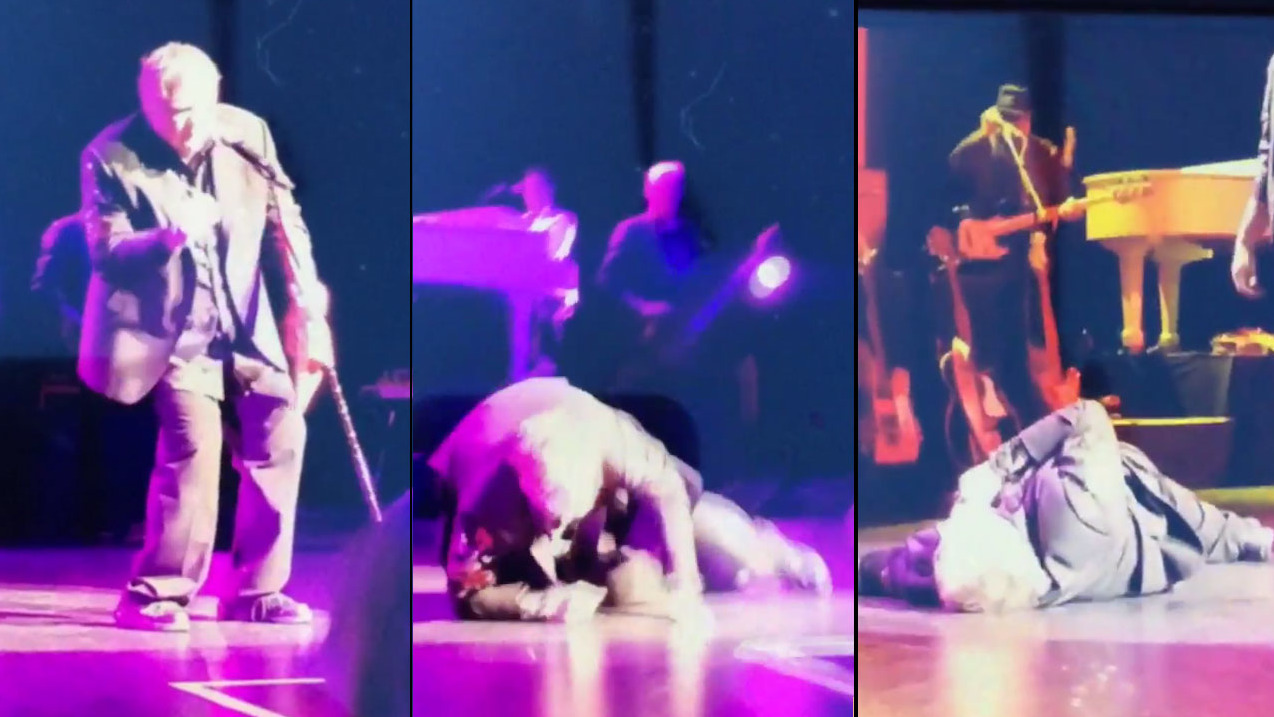For a short while, Creedence Clearwater Revival were the biggest band in America and, after the Beatles split up, the world. Between 1968 and 1972 they released seven albums and an unbroken string of hit singles, including Bad Moon Rising, Proud Mary and Who’ll Stop the Rain. Creedence were the only band who could unite hippies, rednecks and the pop critic of the New Yorker, not to mention younger musicians such as Joe Strummer and Bruce Springsteen, who later testified: “They weren’t the hippest band in the world, just the best.”
But their acrimonious split in 1972 marked the start of decades of legal strife, bad blood and creative paralysis. In fact, Creedence’s afterlife has been so painful and messy that they rival the Smiths as the most unreunitable band in rock, and Fogerty even became estranged from his own songs. He refused to perform them for another 25 years because the associations were too painful. If one of his old hits came on the car radio – which happened often – he would turn it off.
“When I was coming up I met so many rock’n’roll people from the first wave who were bitter,” he says. “I was 22 and I’d think: ‘Why is he so angry?’ You’d think with lots of hit records and success that you’d be very happy.” He pulls a face. “Of course, we both know that in a lot of cases that’s not what happens. In fact, showbusiness seems to be unusually full of folks who things go wrong for.”
A few days short of his 68th birthday, Fogerty at least looks undiminished by his tribulations. He still has the square-jawed, blue-eyed good looks of a Hollywood cowboy. He still sings in a mighty, bluesy roar, although his speaking voice has a quizzical, aw-shucks quality reminiscent of the actor Fred Willard. And he still wears the flannel workshirts he introduced to rock’s wardrobe 20 years before grunge – except he now sells them, too. On the table of his New York hotel suite sit two plastic-wrapped shirts, branded “Fortunate Son” after Creedence’s 1969 broadside against privileged kids who wriggled out of the Vietnam draft. “I suppose if you really thought about it that’s not a title you’d want to have,” he admits. “But it sounds great!”

The shirts are the brainchild of his second wife, Julie, who also suggested the idea for Fogerty’s new album, Wrote a Song for Everyone, on which he revisits his songbook with help from the likes of the Foo Fighters, Kid Rock, Tom Morello and Miranda Lambert. Most importantly, he says, meeting Julie in the late 80s rescued him from a ditch of resentment and despair. “I looked at life like a cat that’s been tasered. I was angry and hurt. I couldn’t deal with it. Julie truly transformed my life. It didn’t happen overnight but eventually all that good feeling forced out all the bitterness.”
Fogerty’s youthful ambition, class-conscious lyrics and craving for stability can all be traced back to his childhood in the California suburb of El Cerrito. After divorcing his alcoholic father, his mother was left to raise five boys alone on a teacher’s salary. John’s bedroom was in the basement and when it rained hard the room flooded, so he had to lay down planks of wood in order to reach his bed. “I didn’t starve or anything but I felt ashamed of my place. I didn’t want people to see my house.”
Fogerty first began playing with his older brother Tom, bassist Stu Cook and drummer Doug Clifford in a high school band, the Blue Velvets, when he was just 15. They signed to San Francisco independent label Fantasy Records, who rechristened them the Golliwogs and made them wear fuzzy white wigs to match their regrettable name. It’s perhaps for the best that their career was halted in 1966 when Fogerty was drafted into the Army Reserve. That was when he experienced his first songwriting epiphany.
“They’re marching you around all the time because they don’t know what to do with you,” he remembers. “I would become delirious and go into a trance. And I started narrating this story to myself, which was the song Porterville. I realised I could go anywhere and just make it up.”
After his discharge, the Golliwogs became Creedence Clearwater Revival and Fogerty began one of the most remarkable songwriting streaks that rock has ever seen. “I was very driven,” he says. “It was life and death. I could see we didn’t have a publicist, we didn’t have a manager, we didn’t have a producer, and we were on the tiniest label in the world, so we had to do it with music. And that kind of meant me.”
He describes his creative process in almost mystical terms. He would stay up late in his apartment, after his wife and baby had gone to bed, stare at a blank wall and let his imagination flow. “I was more like a book writer than a songwriter because I couldn’t make any noise. I think I accidentally discovered a form of transcendental meditation because it was so real.” He sighs wistfully. “I was the best I’ve ever been in my life.”
While Bob Dylan and the Band were turning to folk and country as antidotes to psychedelia, Creedence regarded rock’n’roll itself as the heartbeat of the nation: Americana you could dance to. Fogerty’s songs were so precise and direct that any halfway decent bar band could play them, yet they were enriched with compassion, moral clarity and a growing sadness that made his protest songs about Vietnam, class and the Nixon years some of the most powerful of their era.


Leave a Reply